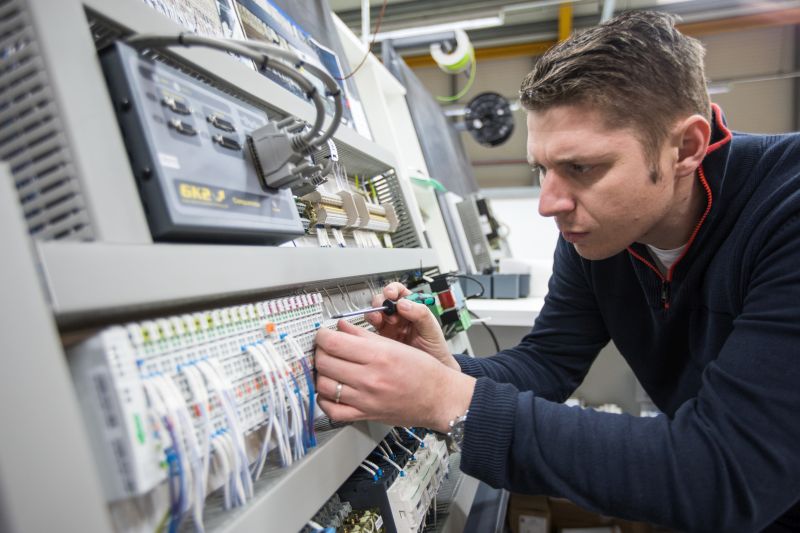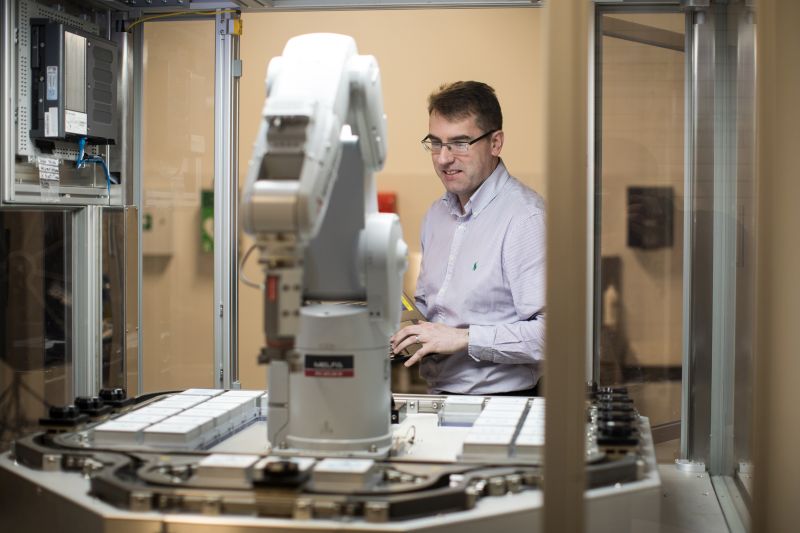Innovation at the core of Modular Automation’s operations
Vivian Farrell, CEO, Modular Automation
Back in 1986 when the men’s shed concept was in its infancy, an engineer in a ‘shed’ in Smithstown in Shannon was carving out his own niche as a visionary and an innovator. Thirty-five years later, the company, which he founded with a name that has stood the test of time, Modular Automation, is continuing the legacy of its founder, the late Ron O’ Brien, by remaining true to the vision of where he wanted the company to go, supplying top quality, reliable engineering services to local and international businesses.
While Modular Automation has undergone ownership changes since those early days, having been sold by O’Brien to one of his largest customers, Molex, through whom it provided machines that created connectors for the global mobile phone manufacturing sector, before being subsequently sold back to three of Modular’s management, via a management buyout (MBO) in 2006, the company’s ethos has never changed. Innovation remains at its core.
Now led by a visionary in her own right, Vivian Farrell, whose mandate on joining the company in 2015 was to grow the company’s profile and develop its brand. Quickly making her mark, it was not long before the then CEO, Mike Lane, handed over the reins to Farrell, enabling him to focus on what he enjoyed most, working with the technical aspects of developing products.
It is those products that personify Modular Automation, now a leader in the delivery of complete automation integration solutions for its customers in Europe, North America and beyond, a gigantic technological step forward from its genesis as a specialist tool and die provider for advanced electronics’ manufacturers who required precise, reliable tools.
Understanding its customers’ manufacturing challenges is the first step in any Modular Automation client collaboration before its team of engineers set about designing and developing machines and equipment to support clients’ product manufacturing.
As Farrell explains: “That might mean designing a machine that will enable them to make more product, so that they can get that product out to market faster. It might mean making their product in a safer way or it might mean that, by providing them with equipment, they can deliver a higher quality product and to a more consistent quality.”
Quick to point out that this is not a case of machine versus human, Farrell emphasises that the company’s equipment is about connecting machines and people, working together to make products faster, safer, and better.
“It’s about supporting the manufacturers, particularly multinationals in Ireland, who are not operating in a low-cost economy, so that the equipment, the technology and the automation that we provide them enables them to remain cost competitive, so that manufacturing is retained in Ireland.
“A very strong element of what we provide into the multinationals is innovation. It’s ideas, innovative solutions, new ways of doing things and very often, as has been the case with some of our clients, it’s the first time they may have manufactured a product using automation.”
While Modular Automation’s machines are now dedicated to the medical device sector, the company is very diversified within that sector, with solutions provided for segments such as orthopaedics, vision health, respiratory, surgical instruments, and cardiology.
A strategic decision to work with a small number of customers means that Modular Automation can work very deeply with these customers and, given that it can take anything from twelve months to two years to design, build and test a machine before it gets onto the customer’s floor, this is not surprising. The company is very much part of its customers’ overall processes; it’s a very deep consultative process.
Establishing a subsidiary in Jacksonville, Florida, in 2015 was another strategic decision, to be close to one of its large customers and to act as a springboard to the company’s growth, given that all of its customers in Ireland are US based, albeit some links are being established with the now growing base of indigenous device sector companies.
“Establishing our own base in the US enables us to get close to our existing customer base and enables us to identify new opportunities that we might not otherwise do from a distance. It’s very beneficial to get on-site and meet customers, get around their manufacturing lines and have good conversations about what their needs are.
“COVID-19 has had an impact in this regard but it is starting to come back. We also like to bring our customers to Shannon, as this is how we showcase our capability and capacity.”
Modular Automation’s campus in Smithstown, Shannon is spread across three buildings, occupying 100,000 sq. ft. of space in total. These buildings house its 170 employees. An additional 8 acres of industrial-zoned land to the rear of its existing buildings has also been acquired for future expansion.
Scaling new heights is very much on Modular Automation’s leadership team’s minds, with many software engineering, project management, validation engineering and management roles being advertised. The company is also true to its roots and values apprenticeships as an important part of its business. Three members of the 2006 MBO team, Mike Lane, Martin Dolan, and Shane Quilligan, all trained as apprentices.
In all its endeavours, the goal is to establish Modular Automation as a leading player in its field on the global stage. Vivian Farrell knows that this will be achieved through its people.
“For me, a big piece is for Modular to be a great place to work and for people to enjoy working here. We are very much focused on making improvement for our people, introducing more flexibility in how we work and growing a diverse workforce, particularly from a gender perspective. The people element is a huge focus for us. It is really important that they have good career progression, that they are learning and developing and that they are growing professionally.”
Modular Automation has achieved a lot in its 35 years, but there is a lot more to come.


